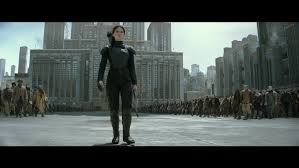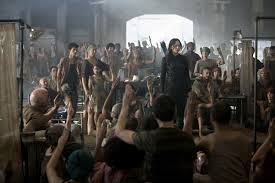WHITE MEN’S BURDENS: Movie Reviews of Suburbicon, Victoria and Abdul and Brad’s Status by Howard Casner
Posted: November 13, 2017 | Author: Donald | Filed under: Uncategorized | Tags: Ali Fazal, Ben Stiller, Brad’s Status, Eddie Izzard, Ethan Cohen, Gary Basaraba, George Clooney, Grant Heslov, Joel Cohen, Judi Dench, Julianne Moore, Lee Hall, Luke Wilson, Matt Damon, Michael Gambon, Michael Sheen, Mike White, Oscar Isaacs, Paul Higgins, Shrabani Bash, Stephen Frears, Suburbicon | 106 Comments » First, a word from our sponsors: I am now offering a new consultation service: so much emphasis has been given lately to the importance of the opening of your screenplay, I now offer coverage for the first twenty pages at the cost of $20.00. For those who don’t want to have full coverage on their screenplay at this time, but want to know how well their script is working with the opening pages, this is perfect for you. I’ll help you not lose the reader on page one.
First, a word from our sponsors: I am now offering a new consultation service: so much emphasis has been given lately to the importance of the opening of your screenplay, I now offer coverage for the first twenty pages at the cost of $20.00. For those who don’t want to have full coverage on their screenplay at this time, but want to know how well their script is working with the opening pages, this is perfect for you. I’ll help you not lose the reader on page one.
Ever wonder what a reader for a contest or agency thinks when he reads your screenplay? Check out my new e-book published on Amazon: Rantings and Ravings of a Screenplay Reader, including my series of essays, What I Learned Reading for Contests This Year, and my film reviews of 2013. Only $2.99. http://ow.ly/xN31r
and check out my Script Consultation Services: http://ow.ly/HPxKE
Warning: SPOILERS
Blu3B33tl3
 Suburbicon, the new postmodern, neo-noir written by Joel and Ethan Cohen, Grant Heslov, and the film’s director George Clooney (perhaps two writers too many), is probably best described as if the Cohen brothers had adapted a James Cain novel with a bit of A Raison in the Sun tossed in for good measure.
Suburbicon, the new postmodern, neo-noir written by Joel and Ethan Cohen, Grant Heslov, and the film’s director George Clooney (perhaps two writers too many), is probably best described as if the Cohen brothers had adapted a James Cain novel with a bit of A Raison in the Sun tossed in for good measure.
The basic premise is that seemingly mild mannered middle class family man Gardner (Matt Damon) has paid some thugs to break into his house pretending to rob it, but in reality they have been hired to kill Gardner’s wheelchair bound wife (Julianne Moore) for the insurance money and so he can marry his sister-in-law (Julianne Moore redux), who has a set of perfectly good legs thank you very much. Read the rest of this entry »
NO MORE FUN AND HUNGER GAMES: The Hunger Games: Mockingjay – Part 2
Posted: December 7, 2015 | Author: Donald | Filed under: Uncategorized | Tags: Danny Strong, Donald Sutherland, Francis Lawrence, Jennifer Lawrence, Julianne Moore, Mockingjay, Peter Craig, Philip Seymour Hoffman, Suzanne Collins, The Hunger Games | 1 Comment »First, a word from our sponsors: I am now offering a new service: so much emphasis has been given lately to the importance of the opening of your screenplay, I now offer coverage for the first twenty pages at the cost of $20.00. For those who don’t want to have full coverage on their screenplay at this time, but want to know how well their script is working with the opening pages, this is perfect for you. I’ll help you not lose the reader on page one.
Ever wonder what a reader for a contest or agency thinks when he reads your screenplay? Check out my new e-book published on Amazon: Rantings and Ravings of a Screenplay Reader, including my series of essays, What I Learned Reading for Contests This Year, and my film reviews of 2013. Only $2.99. http://ow.ly/xN31r
and check out my Script Consultation Services: http://ow.ly/HPxKE
Warning: SPOILERS
 At the end of The Hunger Games: Mockingjay – Part 1, I was left with one burning question: was Alma Coin, leader of the revolution, trying to bring freedom to the land, or was she only seeking power?
At the end of The Hunger Games: Mockingjay – Part 1, I was left with one burning question: was Alma Coin, leader of the revolution, trying to bring freedom to the land, or was she only seeking power?
Well, I have now seen The Hunger Games: Mockingjay – Part 2 and I have my answer.
And no, I’m not going to tell you because it leads to one of the most satisfying climactic scenes in movies for a while.
Of course, I should start off by saying that there is no way I will admit that The Hunger Games is great filmmaking. It certainly has a myriad of faults.
At the same time, I have found this franchise to be more intellectually intriguing, even fascinating, than others like it. There has always been something about the stories that stayed with me, something buried (a bit too much, I believe, at times) at the core of it. For me, The Hunger Games has always been a complex study of how a revolution begins, builds and bursts forth upon the land combined with the crowd pleasing wrappings of a commercial aesthetic.
It’s certainly no Lord of the Rings or Game of Thrones. Yet, I find it more rewarding than Harry Potter if for no other reason than half the time I never quite new where the story was going when it came to Hogwarts and environs (especially in the last entry which, in spite of being split into two films, I’m not convinced it ultimately made a lot of sense). Read the rest of this entry »
NO MORE FUN AND HUNGER GAMES or THE REVOLUTION WILL BE TELEVISED: Movie review of The Hunger Games: Mockingjay-Part I by Howard Casner
Posted: November 28, 2014 | Author: Donald | Filed under: Uncategorized | Tags: Danny Strong, Donald Sutherland, Elizabeth Banks, Francis Lawrence, Jeffrey Wright, Jennifer Lawrence, Josh Hutcherson, Julianne Moore, Liam Helmsworth, Peter Craig, Philip Seymour Hoffman, Stanley Tucci, Suzanne Collins, The Hunger Games: Mockingjay-Part I, Woody Harrelson | 5 Comments »First, a word from our sponsors. Ever wonder what a reader for a contest or agency thinks when he reads your screenplay? Check out my new e-book published on Amazon: Rantings and Ravings of a Screenplay Reader, including my series of essays, What I Learned Reading for Contests This Year, and my film reviews of 2013. Only $2.99. http://ow.ly/xN31r
Warning: SPOILERS
 Okay.
Okay.
How to start.
Well, there’s really no point in putting it off.
At the risk of losing what little reputation I have (if I even have one); at the risk of inviting ridicule, derision, mockery and scorn from those who read my reviews who don’t already hold me in ridicule, derision, mockery and scorn; and at the risk of being reviled by serious filmgoers far and wide…
The Hunger Games: Mockingjay-Part I is not nearly as bad as the critics claim it is and is by far the best entry in the franchise to date, far better than the first two films. Read the rest of this entry »
Movie Reviews of DON JON and CONCUSSION by Howard Casner
Posted: October 3, 2013 | Author: Donald | Filed under: Uncategorized | Tags: Concussion, Don Jon, Joseph Gordon-Levitt, Julianne Moore, Robin Wiegert, Scarlett Johansson, Stacie Passon, Tony Danza | 6 Comments »John L. Sullivan: I want this picture to be a commentary on modern conditions. Stark realism. The problems that confront the average man!
LeBrand: But with a little sex in it.
John L. Sullivan: A little, but I don’t want to stress it.
Preston Sturges: Sullivan’s Travels
I recently saw two films written and directed by people who took some interesting and unique looks at sex and relationships in the new millennium. But though one welcomes the filmmakers’ attempts at exploring such “taboo” topics (as much as anything can really be considered “taboo” anymore), and though both at times offered bold and challenging takes on their subject matter, neither one really came together in a totally satisfying way. In fact, I suppose one could say that each ended on something of a limp note, which I suppose is appropriate for stories about pornography and prostitution.
The first, Don Jon, stars (in the title role), is written by, and is directed by Joseph Gordon-Levitt, which seems to fit perfectly with a movie about someone who masturbates a lot. It’s obviously a labor of love (and self love) on Gordon-Levitt’s part and it’s not without its pleasures, not all of which are onanistic.
It begins by making some incredibly forceful and insightful observations about sex. It certainly offers one of the best defenses of indulging in the viewing of adult filmmaking that I’ve ever heard. It even goes so far as to suggest that Nicholas Myer type movies are no more than porn for women (and again, makes a very, even scarily so, convincing argument for it—neither are remotely realistic looks at sex and relationships, and both are pure fantasy).
It then really goes for the jugular in what it has to say about male/female relationship (perhaps the most honest, if not depressing, view I’ve heard in some time, whether you agree with it or not). Men only want women for sex (even more alarming, in this metrosexual world, men don’t even need women to cook and clean for them—a revelation that causes Don’s girlfriend, played by a dynamic and dynamically sexy Scarlett Johansson, to freak out when she finds out that Don does his own housework; she knows a threat when she hears it). Meanwhile, women, knowing this, use sex to manipulate men into doing whatever they want. And the winner is whoever is most skilled at manipulating the opposite sex (sort of a bastardization of Shaw’s theory of the life force).
There are actually very exciting ideas, worthy of debate. Worthy of being asked. And Gordon-Levitt definitely asks them, and with a certain viciousness beneath the humor. But his ultimate answer is…well, rather conventional, even unoriginal, as it all kinda goes soft as the blood flows out of the organ in the second half.
This is because of Julianne Moore, playing Esther, a character who is, well, not really a real person, but more a construct needed to resolve all the issues brought up in the first half. Now, it’s easy to overlook the fact that she is no more than a construct because Moore is so good in the role, acting in a totally different, down to earth style from everyone else (if truth be told, Gordon-Levitt, Johansson, Tony Danza-as the steroid looking dad-and the others are fun, but they do tend to push things dangerously close to becoming caricatures). Moore plays a woman who has lost both her husband and child. Fair enough. But what makes her a construct is that she also plays someone who has more insight into sex and relationships than a Ph.D. in psychology would have, speaking in calm, motherly homilies while getting Don to change his hair style (she’s just as manipulative as Johansson’s character, but is less confrontational about it).
And at this point, Gordon-Levitt as a writer starts to cheat. When Esther asks Don why he likes porn, he doesn’t give her all the cogent arguments he gave at the beginning of the film. He gives her only one. And with that, a movie that started out giving us a very convincing case as to why the missionary position is the most unfulfilling one for men, becomes a movie that embraces that position as the only one than can deliver true sexual ecstasy (there’s one scene that suggests that Don is starting to question his church’s teachings; maybe so, but he still ends up embracing its positions on, uh, well, positions?).
But I have to applaud Gordon-Levitt. He went for the trifecta in making his film and even if he didn’t get a home run, he still ended up with a movie that is handsomely produced with some fine performances and some very funny scenes, as well as a film that makes some astute observations about sex.
Even if it does peter out in the end.
Concussion, written and directed by Stacie Passon, has a different set of issues. The story is about Abby, a typical stay at home mom type with the added twist that her significant other is also a woman. Abby gets hit in the head with a ball and is rushed to the E.R. As a result, she begins questioning the rather Stepford like existence she’s been leading and finds herself drifting into the life of a prostitute.
Well, actually, that’s part of the rub. You see, the only way I would have known most of this is because I was told this before the movie began.
Concussion is one of those movies that begins in the middle of act one. We know nothing about Abby or what she’s like before the accident, so we have no context to judge what happens to her afterward (we don’t even see the accident itself). So is she a nice, lovable Donna Reed type who turns into the Wicked Witch of the West, or was she always the Wicked Witch (as she seems from the first scene) and after being beaned, she slowly begins to mellow and become nicer and more open to life as she drifts into the world’s oldest profession? I don’t know. I mean, even after half the movie had gone by and Passon seems to imply it’s what is behind Curtain No. 2, I still wasn’t sure.
And none of the other characters are any help, damn them. No one remarks that Abby is acting different in any way, which suggests, ipso facto, that there is no change. And if there isn’t, then what was the point of the accident, as well as the title?
The whole thing seems highly influenced by Luis Bunuel’s Belle de Jour, also about a middle-class housewife (played by the great Catherine Deneuve) who is unfulfilled and becomes a lady of the afternoon. Concussion doesn’t reach the level of Bunuel’s film (what movie could). But Passon is also not that strong with pacing and the movie is a bit slow in parts. One of the ironies is that Bunuel never really shows the sex (it’s all suggested and kept off screen), while Passon fills the screen with a series of encounters that are dwelt on in a protracted manner. But Bunuel’s film seems so wicked and erotic, while Passon’s seems listless and emotionally uninvolving.
Concussion also goes soft in the same way Don Jon does. Abby seems to find a new freedom, a new way of looking at life. She becomes her own person and finds new ways of relating to people, all of which start to look good on her (Robin Wiegert as Abby is often very appealing in the way she struggles to come to terms with how she is changing). But when the secrets seep out, suburban morality once again rears its head and Abby opts for the comfort of Cheever/Updyke normality (at least I think that’s how Concussion ends—there’s a quick flash of Abby with some of the other characters that may indicate a different ending, but it went by so fast, I couldn’t tell if it was a flashback or a flashforward).
In Concussion this return to normality is symbolized by a wrap around porch. In Don Jon, it’s symbolized by the missionary position. But a rose by any other name, I guess.











